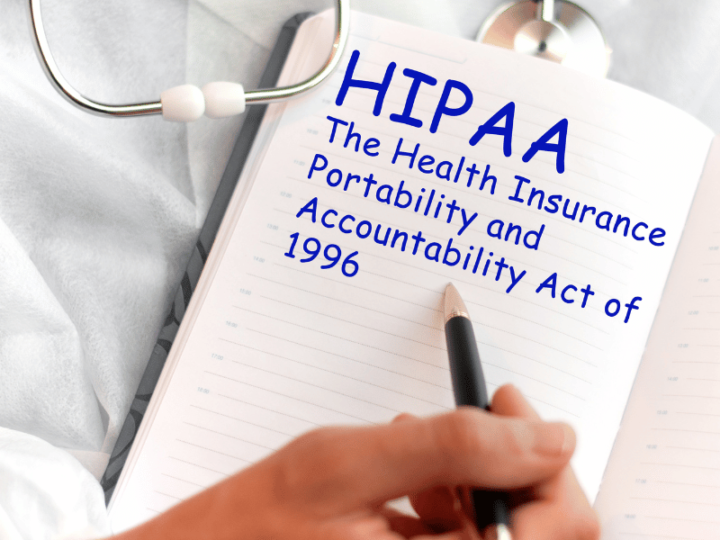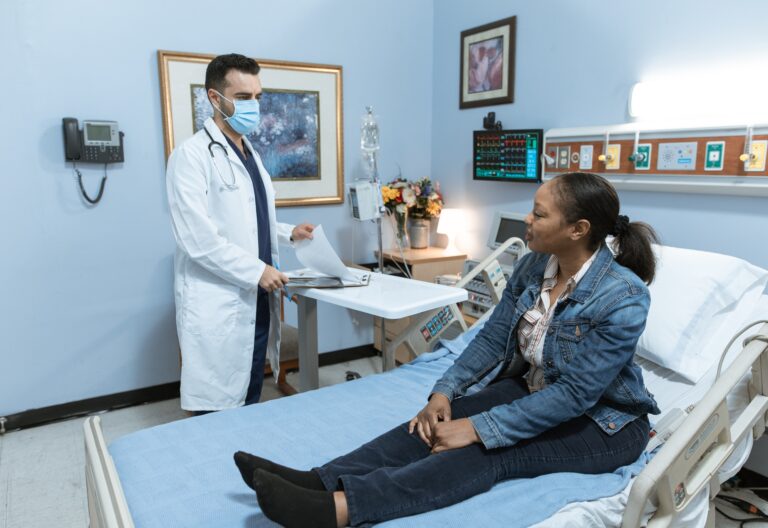How do you send secure text messages to patients?
Unfortunately, the default SMS options on your phone may not comply with the rigid healthcare standards required by law. Understand the importance of secure texting for physicians and the best practices to follow to ensure the safety of patient information.
Best Practices for Physicians When Sending Texts:

Physicians should follow these HIPAA-compliant practices when texting patients:
1. Use a Secure Texting App for Physicians
Not all secure apps are suitable for physicians or any professional working in the healthcare industry. Secure apps like Signal, WhatsApp, and Telegram offer security features, but these apps shouldn’t be used to send PHI. Instead, medical practitioners should opt for apps designed to send, receive, and process healthcare messages.
Apps like iFax offer solutions that ensure HIPAA-compliant texting for healthcare.
2. Ask for Patient Consent
Before communicating sensitive medical information via text, obtain patient consent whenever possible. The Center for Care Innovations suggests the following steps when obtaining consent:
- The consent form’s language should fit the basic literacy level of your patient population.
- Include a statement that the patient agrees to receive text messages from your practice
- Explain what the text messages are for and the benefits of the text messaging service
- Address privacy risks if the patient loses their phone or someone else accesses the device
- Add a disclaimer of the possible costs for cell phone provider services
- Include an opt-out/cancel option for the text messaging service.
- Allow patients to choose language preference if you’re offering a multi-language app
- Ask for the patient’s cell phone number, name, and signature

3. Follow HIPAA Standards When Sending Identifiable Patient Information
Refrain from including identifiable information such as names, birthdays, or specific medical conditions when sending text messages. Instead, use patient initials or other identifiers. Sending protected health information (PHI) is only allowed if you use a HIPAA-compliant app, but it still should be done with caution and within the bounds of the healthcare industry laws. Only share the minimum amount of PHI necessary, limit their sharing to only authorized users, and implement the appropriate technical and administrative safeguards to prevent unauthorized access.
4. Regularly Update Software
HIPAA breaches may occur if you don’t update your text messaging software. You don’t want to incur heavy penalties for a HIPAA violation. Ogden Murphy Wallace law firm reports that Anchorage Mental Health Services was ordered to pay a $150,000 HIPAA settlement after it failed to patch its software, leading to a breach of 2,743 patient records. Maximize app performance by downloading the latest security patches and updates. These regular updates can help protect against known vulnerabilities and security threats.
5. Don’t Use Public Wi-Fi
You might be tempted to connect to a public Wi-Fi network while working remotely. Avoid sending information over unsecured connections, as they can be vulnerable to interception. Always use a secure internet connection with a virtual private network (VPN) when accessing your text messaging app remotely.
6. Enable Remote Wipe
Remember to enable the remote wipe functionality on your phone. This feature allows you to remotely erase data from your device in case it gets lost or stolen. You can use the remote wipe feature on Android and iOS devices. Follow the instructions on Google’s find, secure, erase a Lost Android Device and Apple’s Erase a Device in Find Devices on iCloud.com.

What Is Secure Messaging for Physicians?
Secure messaging for physicians involves exchanging messages through a platform or application that abides by the standards and rules of HIPAA. Many messaging apps are free to download and market themselves as secure, but they don’t necessarily comply with HIPAA.
An app may have robust security measures to handle sensitive information safely, but that does not automatically make it HIPAA compliant. Secure messaging for physicians goes beyond enabling security features for exchanging messages.
A secure app is any application employing robust encryption techniques and other safety measures to block threats. Security features include encryption, access controls, and passwords. A HIPAA-compliant app incorporates all of these security measures and, at the same time, meets specific privacy and security requirements.
The Future of Secure Texting For Physicians
Texting in healthcare calls for secure messaging platforms prioritizing patient safety and confidentiality. For physicians, this means utilizing HIPAA-compliant encrypted messaging apps with features that allow for the secure exchange of sensitive health information. The future of secure texting in healthcare will also likely involve technological advancements that aim to make texting more seamless and secure.
Artificial intelligence (AI) will also play a role in enhancing efficiency in text message management, offering automated responses, and analyzing data to deliver personalized messages.







